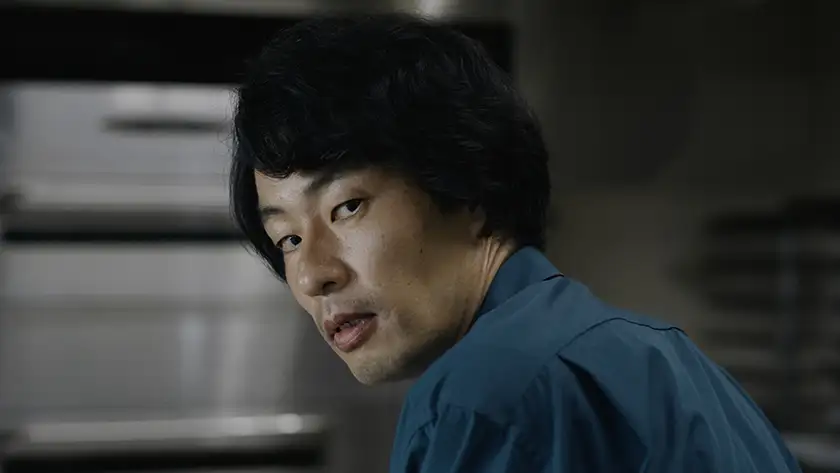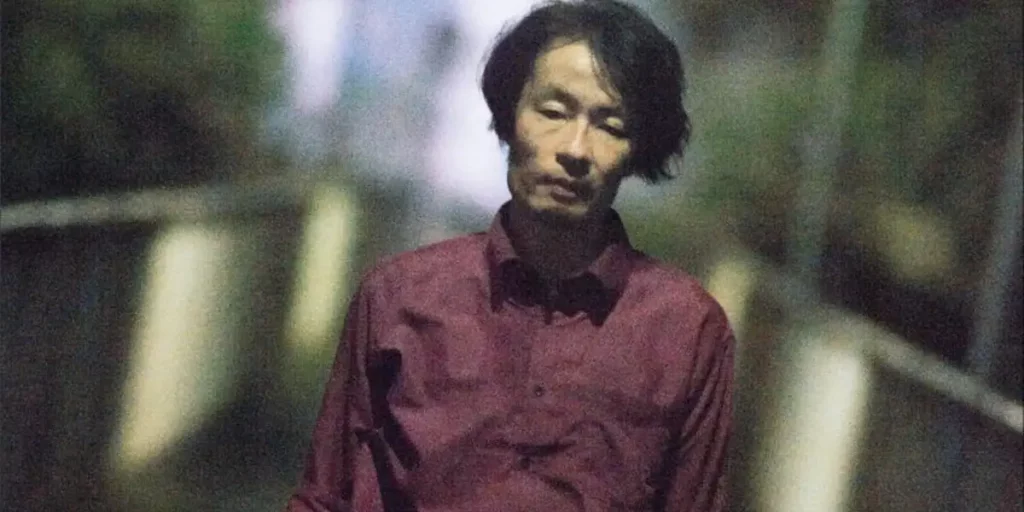Kiyoshi Kurosawa revels in technological terror and alluring ambiguity in Chime, a film which is both frightening and perplexing.
At first just a kitchen implement, knives very quickly take on a terrifying edge in Chime. Before long, every time a character even glances at one, your blood runs cold. This spine-tingling nervousness is indicative of Chime in general, with Kiyoshi Kurosawa (Cure, Pulse) injecting a cold, detached terror into everyday domesticity. He’s no stranger to this, and he’s certainly done it better before, but the ambiguous chill that accompanies nearly every shot in Chime is enough to keep you engrossed for its 45-minute runtime.
Takuji (Mutsuo Yoshioka, Uncle’s Paradise) is a teacher at a cooking school, a cool and calculated man who delivers classes with expertise and clarity but with little emotion. His homelife is no different, with few words shared with his wife, who has an unnerving obsession with recycling, and son, a nearly mute boy who spends most of his time in his bedroom. When a student tells Takuji that he hears a noise in his head—something like a chime or a scream—the teacher and other students dismiss it as madness. A shocking scene soon after sets Chime on its way to being a full-blown psychological horror affair, with Takuji’s own sanity deteriorating rapidly.
From the very beginning, Kurosawa presents a soulless world. Technology and industrialisation—the former a key theme on his 2001 film Pulse—influence everything in the film’s environments; the interiors of the cooking school are all cold steel and harsh lines, whilst the exterior cityscape is devoid of people and rammed with grey buildings. It’s a surgical sterilisation that chiefly informs Chime’s horror aspects. Violent acts are committed with brutal precision, with no fanfare nor amplified gore, enhancing the film’s most shocking moments. The overall atmosphere of Chime is superb, despite a lot of the terror happening within people’s minds or off screen. It is impressive that such terrifying imagery is, ironically, never seen directly.

Chime perhaps would have benefitted from a longer runtime. It shares the ambiguity of Cure, but inevitably has less character or worldbuilding to contextualise its mystery against. It can be perplexing at times, not just because of it’s short runtime but also because of the way Kurosawa flits from scene to scene and from idea to idea. He seems unsure which ones to run with and where exactly to take the bulk of them. The end result can be a little confusing, but also quite fascinating.
Despite how heavy Chime is on mystery, there is enough to latch onto and to make your own interpretations from. Everyone and everything in Chime is slightly off; even Takuji’s wife, who seems so pleasant, spends much of her time putting an inordinate amount of empty cans into recycling bins, an alarming glee on her face as she stomps them down. Further enforcing this atmosphere is expert sound design that utilises both silence and intense noise to strong effect along with precise cinematography from Koichi Furuya, making Chime a completely unsettling film from start to finish.
Chime premiered at the 2024 Berlin Film Festival. Read our reviews of What You Wish For and Kurosawa’s “Cure”!

